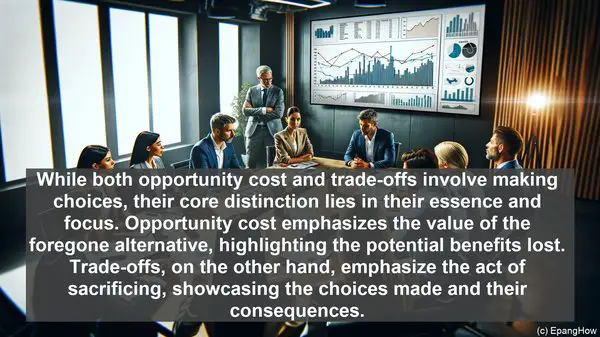Introduction: The Essence of Decision-Making
Hello, and welcome to our article on opportunity cost and trade-offs. When it comes to making choices, we often encounter these two concepts. While they may seem similar at first, they possess distinct characteristics and implications. Let’s dive in!

Defining Opportunity Cost: The Value of the Next Best Alternative
Opportunity cost refers to the value of the option we forgo when selecting a particular course of action. It’s essentially the benefits or gains we could have obtained from the next best alternative. For example, if you choose to invest in stocks, the opportunity cost would be the potential returns you would have earned from real estate or bonds.
Understanding Trade-offs: The Act of Sacrificing
Trade-offs, on the other hand, involve sacrificing one thing for another. It’s the notion of giving up a certain aspect or benefit in exchange for another. In decision-making, trade-offs are inevitable. For instance, if you decide to pursue higher education, you’re trading off immediate employment opportunities for long-term career prospects.
Differentiating the Two: Essence and Focus
While both opportunity cost and trade-offs involve making choices, their core distinction lies in their essence and focus. Opportunity cost emphasizes the value of the foregone alternative, highlighting the potential benefits lost. Trade-offs, on the other hand, emphasize the act of sacrificing, showcasing the choices made and their consequences.

Significance in Decision-Making: Weighing Options
Understanding opportunity cost and trade-offs is crucial in decision-making. By assessing the opportunity cost, we can evaluate the potential gains and losses of each alternative, aiding us in making informed choices. Trade-offs, on the other hand, help us prioritize and allocate resources effectively, ensuring optimal outcomes.
